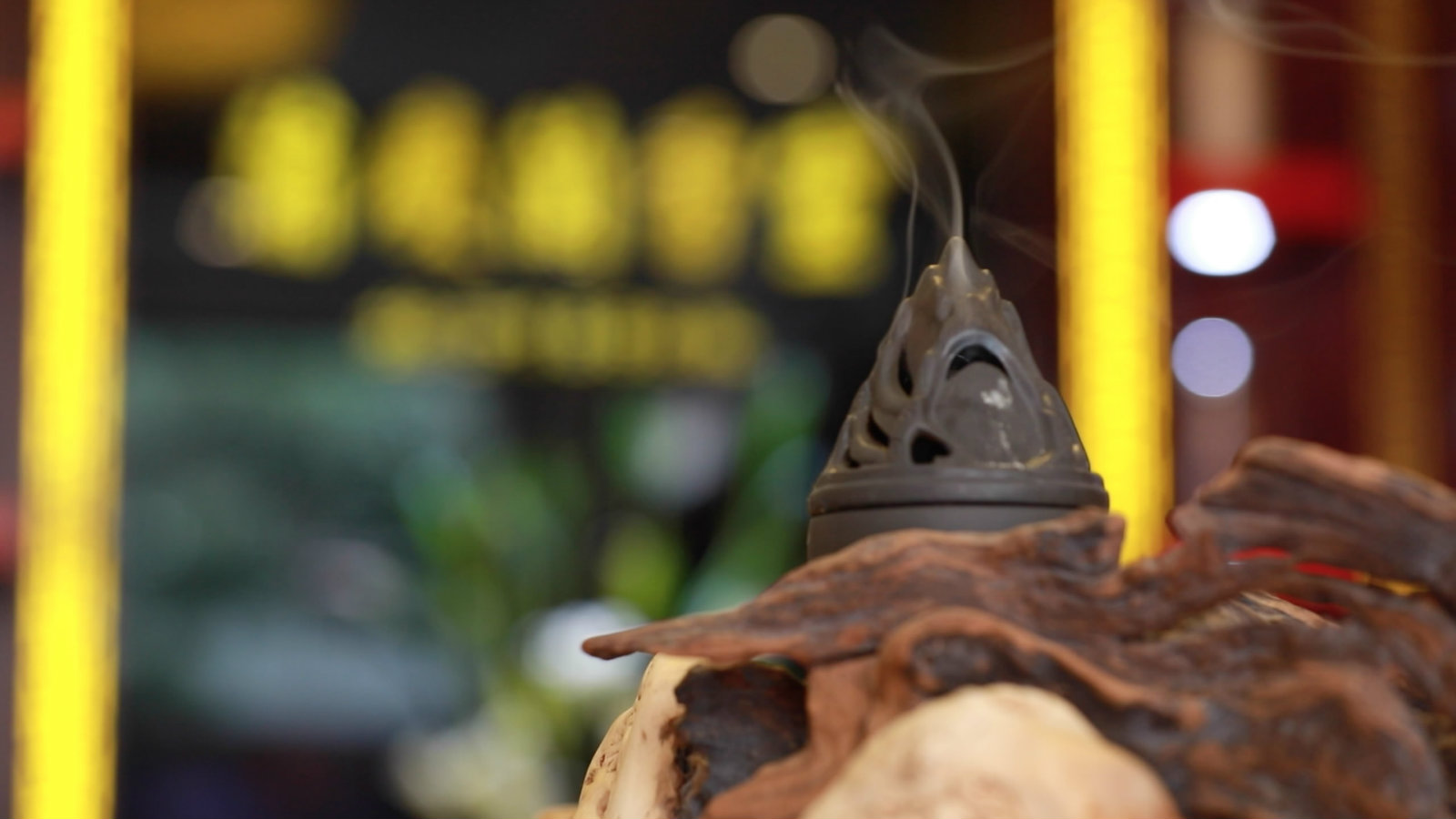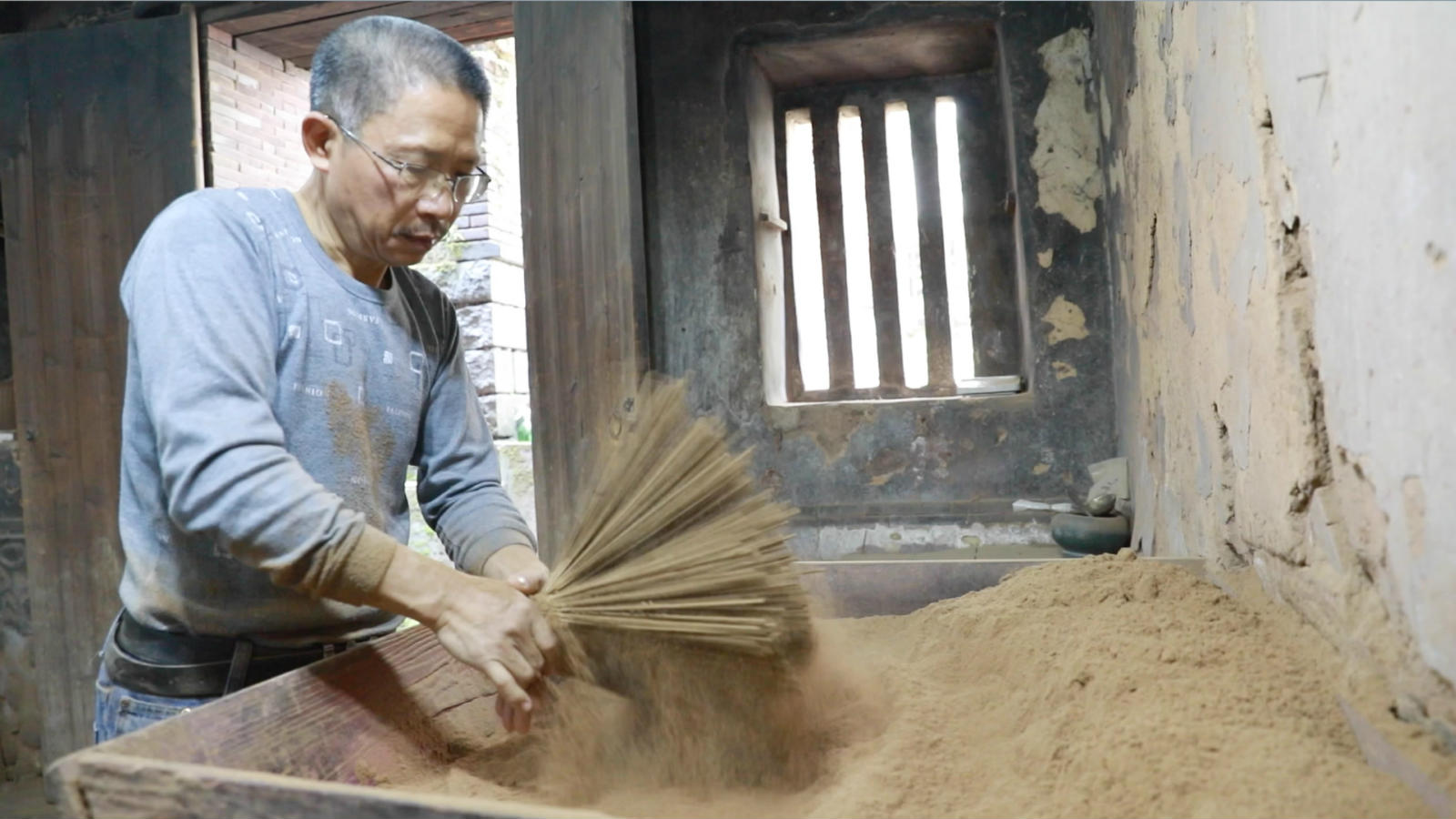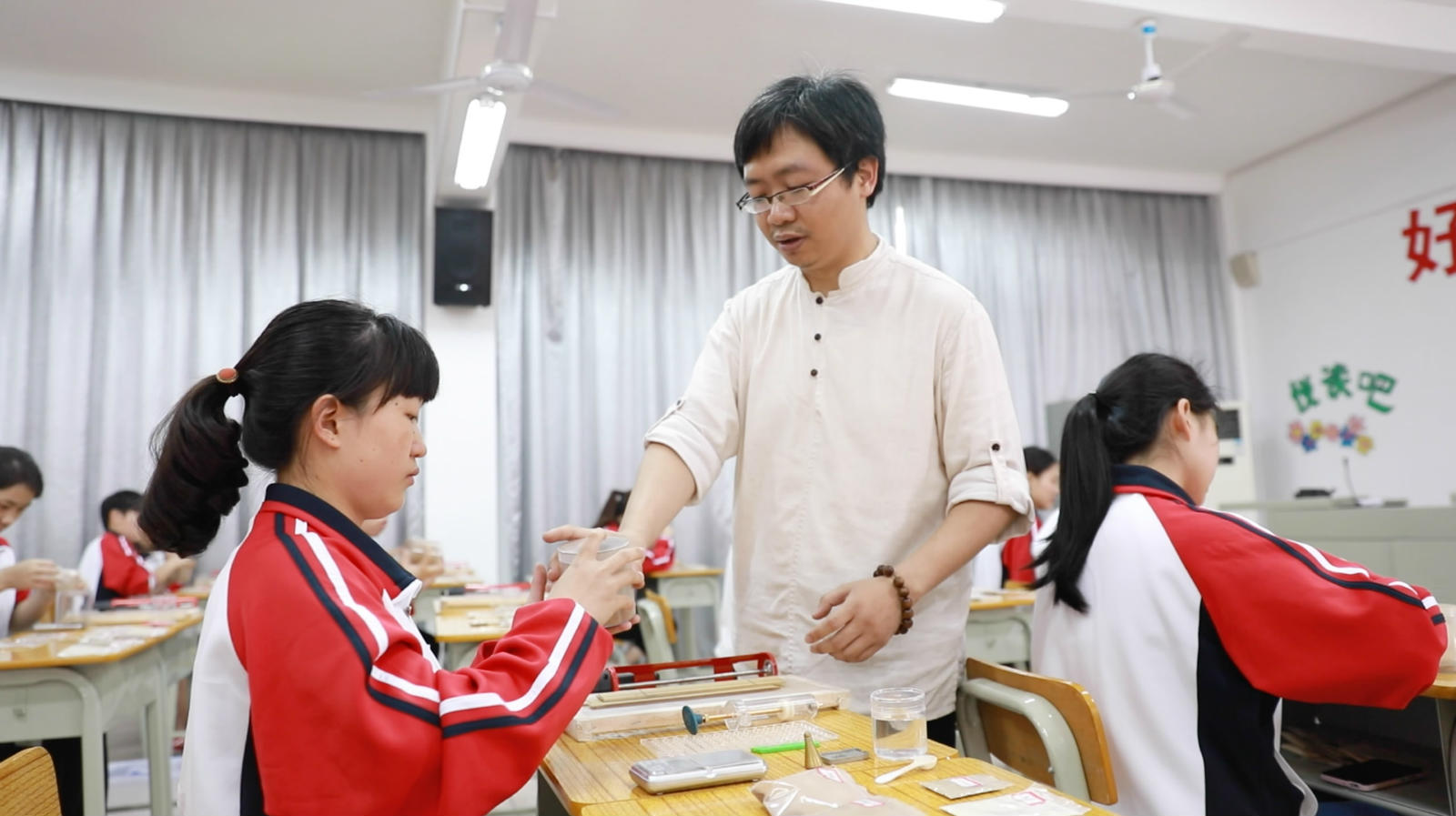


Incense (Photo/CGTN)
By CGTN's Lin Nan
Located on the southeast coast of China, the city of Quanzhou was one of the most important ports along the historic Maritime Silk Road. Arab traders brought incense, one of the most prevalent products on the route, and it soon became a pillar industry in the city. Now, descendants of these Arab traders are trying to revive this traditional family business centuries later.
63-year-old Pu Lianggong has spent much of his life in this small workshop. One of his far-off ancestors was an Arab spice trader who eventually settled down in Quanzhou. As a 17th generation member of the Pu family, he has been learning how to make incense since his childhood.

Pu Lianggong (photo/CGTN)
Pu Lianggong, the incense artisan, said “my dad and grandma taught me to recognize hundreds of types of spices when I was only five. We need to combine dozens of spices and herbs to make incense for different seasons and purposes.”
The skill has been passed down from generation to generation, by word of mouth, and it takes years to master it.
The technique of making incense originated from the Maritime Silk Road over one thousand years ago. The descendant of the Pu family is promoting it to younger generations through various platforms.

Pu Haixing (photo/CGTN)
Pu Haixing is the son of Pu Lianggong. He founded an incense-making course in the local vocational school. Students learn not only how to make incense, but also how to present it in the right way.
Yu Yiping, the student of Quanzhou Preschool Education College, said: “A little variation of certain spices can make the smell and texture totally different. I find it fascinating.”
Traditionally, incense is used for solemn, religious occasions. But Pu Haixing has been very active on social media promoting its other uses and soothing effects.
Pu Haixing, a teacher of Quanzhou Preschool Education College, said “the pace of modern life is very fast and stressful. Burning incense can help people relax and calm down. I want more people to get to know and appreciate the incense culture.”
And the Pu family hopes that through their hard work, this family business can be revived and sustained, and become more mainstream in the future.
 Fire brigade in Shanghai holds group wedding
Fire brigade in Shanghai holds group wedding Tourists enjoy ice sculptures in Datan Town, north China
Tourists enjoy ice sculptures in Datan Town, north China Sunset scenery of Dayan Pagoda in Xi'an
Sunset scenery of Dayan Pagoda in Xi'an Tourists have fun at scenic spot in Nanlong Town, NW China
Tourists have fun at scenic spot in Nanlong Town, NW China Harbin attracts tourists by making best use of ice in winter
Harbin attracts tourists by making best use of ice in winter In pics: FIS Alpine Ski Women's World Cup Slalom
In pics: FIS Alpine Ski Women's World Cup Slalom Black-necked cranes rest at reservoir in Lhunzhub County, Lhasa
Black-necked cranes rest at reservoir in Lhunzhub County, Lhasa China's FAST telescope will be available to foreign scientists in April
China's FAST telescope will be available to foreign scientists in April "She power" plays indispensable role in poverty alleviation
"She power" plays indispensable role in poverty alleviation Top 10 world news events of People's Daily in 2020
Top 10 world news events of People's Daily in 2020 Top 10 China news events of People's Daily in 2020
Top 10 China news events of People's Daily in 2020 Top 10 media buzzwords of 2020
Top 10 media buzzwords of 2020 Year-ender:10 major tourism stories of 2020
Year-ender:10 major tourism stories of 2020 No interference in Venezuelan issues
No interference in Venezuelan issues
 Biz prepares for trade spat
Biz prepares for trade spat
 Broadcasting Continent
Broadcasting Continent Australia wins Chinese CEOs as US loses
Australia wins Chinese CEOs as US loses